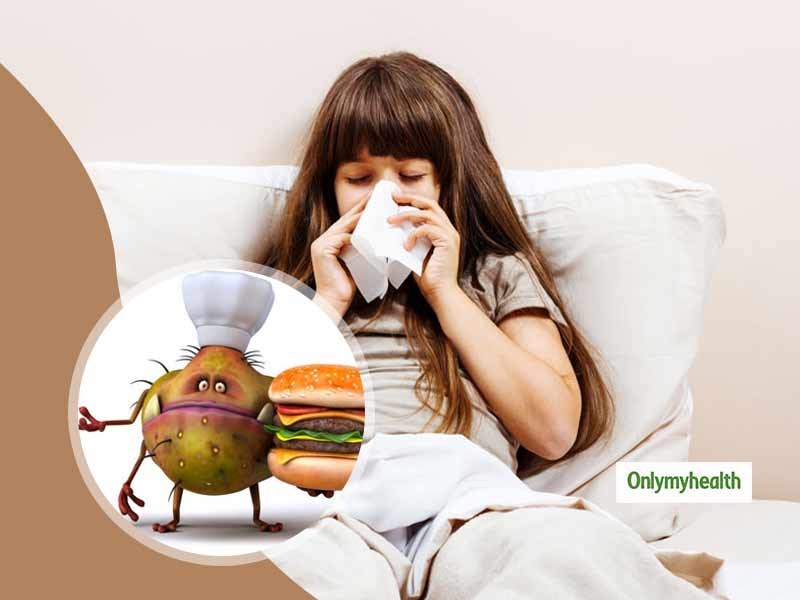
We often hear how a season change leads to a weak immune system. This is because, during such times, the body becomes prone to certain bacteria and foodborne illnesses, which leads to a disturbed digestive system. Bacteria and viruses can lead to various illness affecting various systems. As far as the gut is concerned, we primarily deal with gastroenteritis and gastritis, sometimes inflammation of the large gut (colitis) is also a problem. Viruses can also cause viral hepatitis amongst which A & E are foodborne. Most of these illnesses have certain specific symptoms, which make it all the more easier to look for treatment options.
Table of Content:-

Anyone is at risk of developing bacteria and foodborne illness, but the risk is more in people who do not pay attention to food hygiene. Eating uncooked, semi-cooked, precooked food is especially implicated. Eating at roadside eateries increases the risk if hygiene is an issue there. Many times food handlers may carry infections which they can then pass on to consumers. Hence, primary care while eating and handling food is a must to prevent foodborne illnesses. One should keep the surroundings clean, eat fresh and well-cooked food and store food properly to reduce the chances of any infections. Also, it is a must to not store any cooked food item for more than 2 days.
Also Read: Do You Feel Cold All The Time? These Can Be The 5 Reasons To This
Symptoms of Bacteria and Foodborne Illness

Most of the times, the symptoms of Bacteria and Foodborne Illness are vomiting, loose stools, bloating, abdominal pain, etc. In very severe colitis, sometimes bleeding with stools may also occur. If the patient has viral hepatitis then nausea, vomiting, loss of appetite and jaundice may also be seen. Also, you need to see a doctor right away if these below-mentioned symptoms occur too:
- Rapid pulse change, breathing problems, pale skin or excessive chest pain
- Severe sudden dehydration leading to dry mouth, decreased urine, sunken eyes, and sudden increase in the heart rate
- Difficulty in analysing certain situations or excessive confusion
Diagnosis of Bacteria and Foodborne Illness
Diagnosis is mostly clinical and depending on the symptom profile. Also, sometimes stool tests and cultures with blood tests may be needed. For blood in stools, sometimes colonoscopy is required. Similarly for infective gastritis due to H Pylori, an endoscopy may be needed. Treatment for viral illness is usually supportive and symptomatic, as most of them are self-limiting. Antibiotics may be required for bacterial infections.
Also Read: If You Have Dry Mouth, Do Not Take It Casually
Care Tips To Prevent Bacteria and Foodborne Illnesses

The first and foremost here is to understand that cleanliness and essential awareness can help prevent a lot many diseases even before its inception. To help prevent certain bacteria and foodborne illnesses, follow these simple care tips for complete health:
- Ensure food hygiene
- Avoid eating at roadside places
- If eating doubtful food, ensure it is well cooked
- Have fruits and vegetables after washing correctly with clean water and peel if possible
- Drink enough fluids
- Maintain a healthy lifestyle with adequate exercise
With inputs from Dr Shanti Swaroop Dhar, Principal Consultant - Gastroenterology, Max Multi Speciality Centre, Panchsheel Park
Read more articles on Other Diseases
How we keep this article up to date:
We work with experts and keep a close eye on the latest in health and wellness. Whenever there is a new research or helpful information, we update our articles with accurate and useful advice.
Current Version